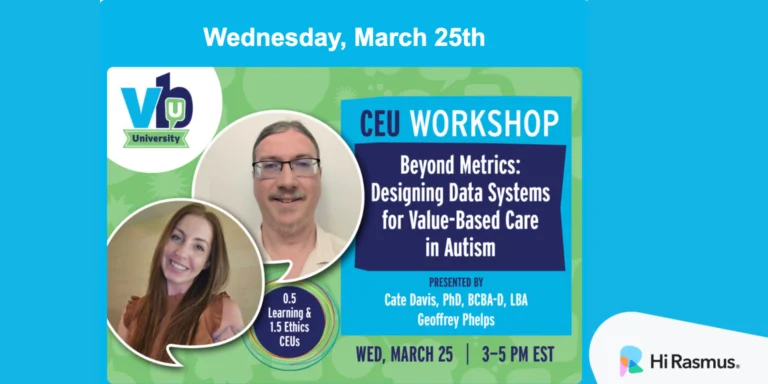On the latest episode of Hi Rasmus & Friends: Stories Behind the Science, we sat down with Dr. Lynn Koegel, renowned autism researcher, clinician, and co-developer of Pivotal Response Treatment (PRT). Her work has shaped the field of autism intervention for nearly 50 years. As we found out in this episode, she’s still on the leading edge—now exploring AI-supported communication for children, adolescents, and adults.
Host Amy Cook opens with a personal reflection, sharing how Dr. Koegel’s child-led, motivational approach profoundly influenced her own career when they worked together via Telehealth decades ago. What follows is a deep and insightful conversation that spans history, innovation, and heart.
The Birth of Pivotal Response Treatment
Dr. Koegel shares how PRT began in the late 1970s, as she and her husband, Dr. Robert Koegel, observed that children in structured ABA settings often lacked motivation and joy. They began experimenting with strategies like child choice, natural reinforcers, and task variation—eventually developing what we now know as PRT.
“We put as many motivational components together as we could, and it made a huge effect,” she explained. “We want the kids to be smiling and happy and engaged—not trying to get out of the session.”
This naturalistic, play-based model helped shift the field toward approaches that not only teach skills but also encourage real-world generalization—skills that are actually applied at home, in school, and on the playground.
Flashcards Out, Real Life In
Dr. Koegel and Amy reflected on the contrast between traditional methods and PRT, particularly in terms of generalization. Structured programs often relied on flashcards or tabletop learning. But children who could label a picture of an apple sometimes couldn’t name the real fruit in their lunchbox.
The PRT model flipped this, emphasizing meaningful, real-world learning in everyday environments. This shift didn’t just benefit the child—it made therapy more accessible and less stressful for families, too.
“It’s easier to implement naturalistic strategies in everyday settings than trying to carve out hours for sit-down drills,” Dr. Koegel said.
Pushing the Future: AI-Supported Communication
Despite her decades of experience, Dr. Koegel isn’t slowing down. She’s now working with Stanford’s computer science department on research that uses artificial intelligence to support verbal communication in both children and adults.
Their first project, NORA, helped adolescents and adults practice key social skills—like asking questions, offering compliments, and staying on topic—through AI-powered feedback and practice.
“It’s not a substitute for human interaction,” she emphasized, “but it can supplement what we’re doing and support families and educators when time or resources are limited.”
With early results showing positive generalization into real conversations, her team is now expanding their work into early communication for younger children, using voice recognition and video prompts based on their interests.
A Legacy Rooted in Empowerment
Dr. Koegel’s approach isn’t just about science—it’s about compassion and advocacy. She spoke candidly about the ongoing need to reduce stress for parents of children with autism, emphasizing that our systems must do more to support families meaningfully.
When asked what advice she’d give a younger version of herself or a new clinician just starting out, her answer was clear: follow your passion and keep innovating.
“Doing research that leads to new ways of helping kids—that’s what’s most rewarding.”
Focus on the Child in Front of You
To close the episode, Dr. Koegel reflected on the Hi Rasmus guiding principle: Focus on the child in front of you.
“Every child is different. We need to raise the bar, not lower it, and build individualized programs that help each child reach their full potential.”
Dr. Koegel’s legacy continues to grow—not just in research or media appearances like Supernanny, but in the lives of families and professionals she’s empowered through decades of groundbreaking work.









